1.日军华中派遣宪兵队《关于南京宪兵队辖区治安恢复状况的调查报告(通牒)》(1938年2月19日)
“Investigation Report (the Note) Concerning the Restoration of Local Public Order by Nanjing Military Police” of the Japanese Military Police Brigade for Central China
此件档案系昭和十三年(1938年)二月十九日日军华中派遣宪兵队司令官大木繁《关于南京宪兵队辖区治安恢复状况的调查报告(通牒)》,汇总了昭和十三年二月一日至十日南京及周边地区各市县军队“慰安设施”状况。其中包括南京、下关、句容、镇江、金坛、常州、丹阳、芜湖、宁国等各地日军数量、“慰安妇”人数、“慰安妇”一人所应对的士兵数、“慰安妇”构成、一旬内利用“慰安所”士兵人数等情况。档案记载,日军为侵略部队有比例配备“慰安妇”,南京当时驻扎日军2.5万人,“慰安妇”人数为141人,“慰安妇”一人所应对士兵数为178人。
This file is the “Investigation Report (the Note) Concerning the Restoration of Local Public Order by Nanjing Military Police” submitted by Shigeru Oki(大木繁), Commander of the Japanese Military Police Brigade for Central China, on 19 February of the thirteenth year of Showa (1938), which summarizes the situation of military “comfort facilities” on 1-10 February 1938 in Nanjing and the cities and counties in its surrounding area, including the number of Japanese troops and “comfort women”, the number of soldiers per “comfort woman”, the composition of the “comfort women”, the number of soldiers using “comfort stations” within a ten-day period and so on in Nanjing, Xiaguan, Jurong, Zhenjiang, Jintan, Changzhou, Danyang, Wuhu and Ningguo. According to the archives, the Japanese equipped their aggression forces with “comfort women” in proportion to the soldiers; 25,000 Japanese troops were stationed in Nanjing then, and 141 “comfort women” were equipped, or one “comfort woman” for 178 soldiers.
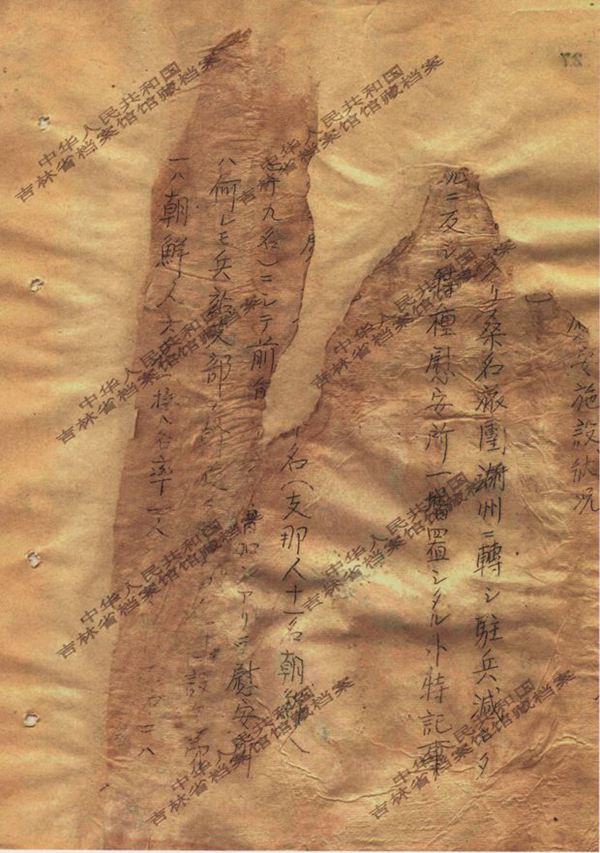


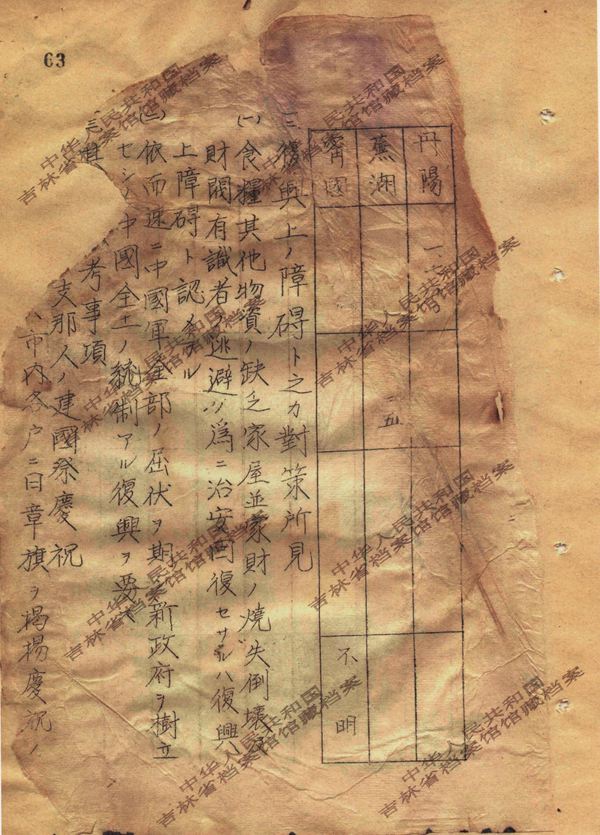
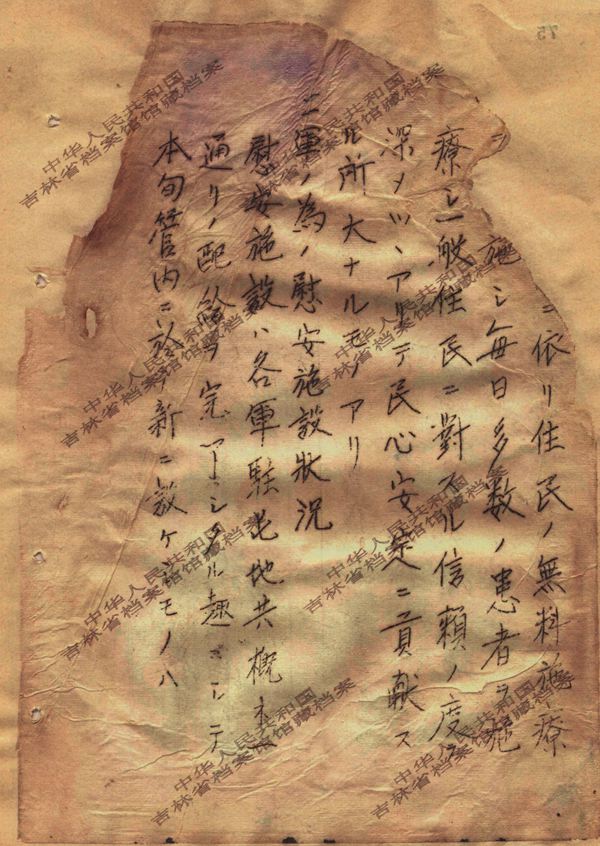
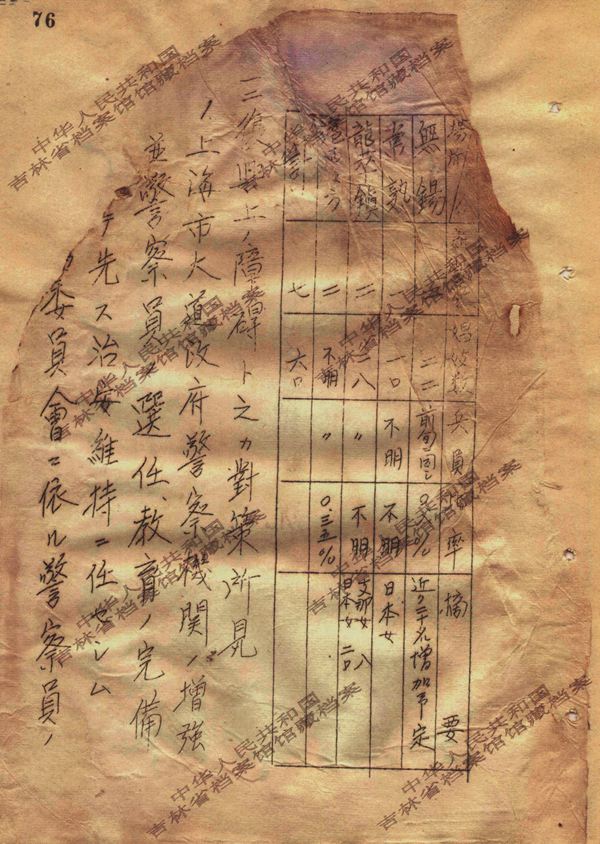
2.日军华中派遣宪兵队《关于南京宪兵队辖区治安恢复状况的调查报告(通牒)》(1938年2月28日)
“Investigation Report (the Note) Concerning the Restoration of Local Public Order by Nanjing Military Police” of the Japanese Military Police Brigade for Central China
此件档案系昭和十三年(1938年)二月二十八日日军华中派遣宪兵队司令官大木繁《关于南京宪兵队辖区治安恢复状况的调查报告(通牒)》,报告共分12项内容,其中的第11项以表格的形式汇总了南京宪兵队辖区各市县军队“慰安设施”状况,表中的项目与二月十九日所报表格基本相同。从表中可以看到,芜湖“慰安妇”人数一旬内增加84人,109名“慰安妇”中中国人“慰安妇”有25人,朝鲜人“慰安妇”有36人,占芜湖“慰安妇”总数的二分之一还要多。镇江2月中旬日军进入“慰安所”人数为8929名,比上旬的5734名增加了3195名。档案还记载,丹阳二月中旬“慰安妇”一人所应对士兵数为267人,因“慰安妇”人数不够,还要在当地招募“慰安妇”。
This file is the “Investigation Report (the Note) Concerning the Restoration of Local Public Order by Nanjing Military Police” submitted by Shigeru Oki, Commander of the Japanese Military Police Brigade for Central China, on 28 February of the thirteenth year of Showa (1938), which contains 12 titles, wherein Title 11 summarizes in tabular form the military “comfort facilities” in various cities and counties under the control of the Nanjing Military Police Brigade. The items in the table are basically the same as those reported on 19 February. As the table shows, “comfort women” in Wuhu increased by 84 in ten days; among the 109 “comfort women”, 25 were Chinese and 36 Korean, accounting for more than half of the total number in Wuhu. In Zhenjiang, 8,929 Japanese soldiers visited “comfort stations” during the ten days of mid-February, 3,195 more than the 5,734 soldiers in the previous ten-day period. It is also recorded that in Danyang, each comfort woman had to face 267 soldiers during the ten days of mid-February; because they were not enough, more “comfort women” were recruited in the local area.
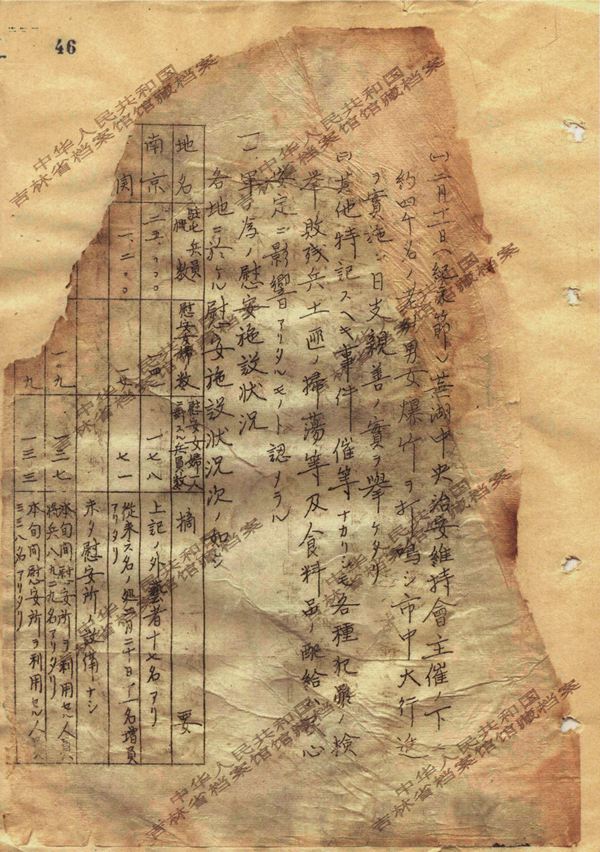
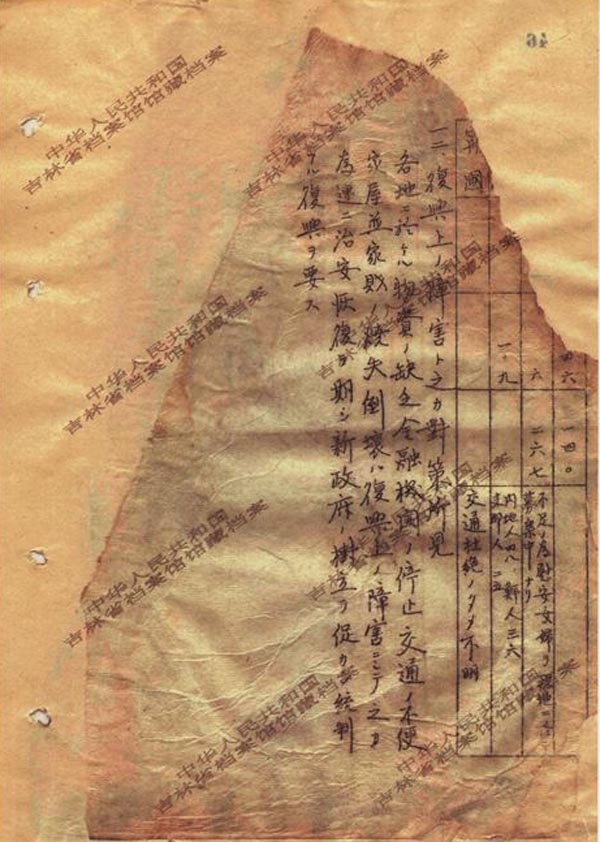
3.日军北支那宪兵队《关于慰安所增加设备等问题的报告》(1943年)
“Report on Improving Comfort Station Facilities and Other Issues” of the Japanese Military Police Brigade for North China
由于大量“利用”“慰安妇”,且“慰安妇”生存状态恶劣,其中不少患上了性病,并传染到日军。据日军北支那宪兵队《关于慰安所增加设备等问题的报告》,由于“性病带来的毒害很重,导致战斗力消耗”,所以“慰安妇必须安装清洗设备和清洗用具”。
Since a large number of “comfort women” were “used” amid poor living conditions, many suffered from sexually transmitted diseases, which were then spread to the Japanese troops. According to the “Report on Improving Comfort Station Facilities and Other Issues” of the Japanese Military Police Brigade for North China, because “venereal diseases caused heavy hazards, leading to consumption of combat effectiveness”, the “comfort women must install cleansing equipment and cleansing utensils”.
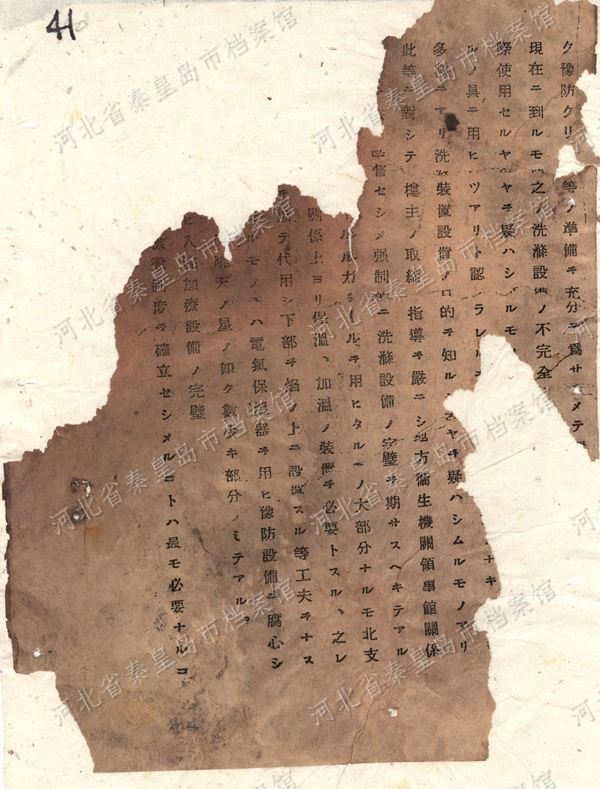
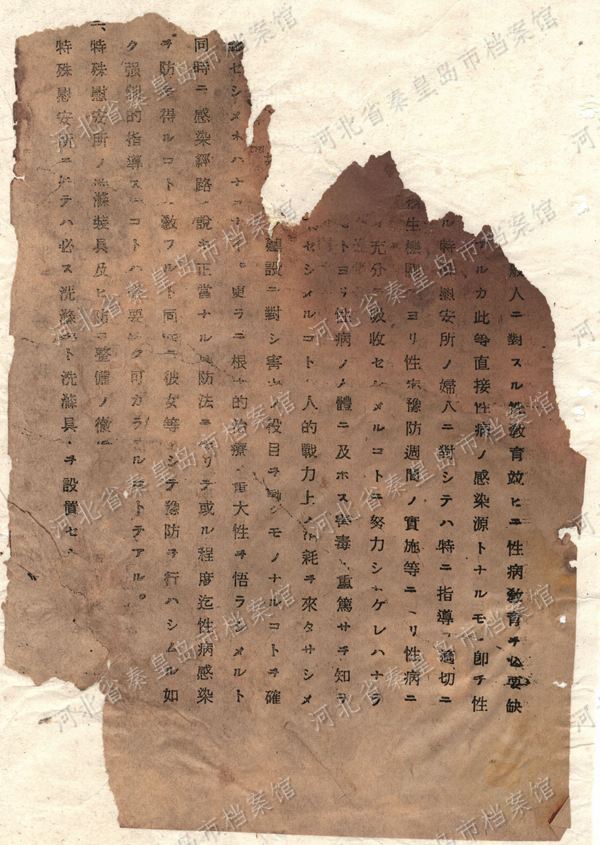
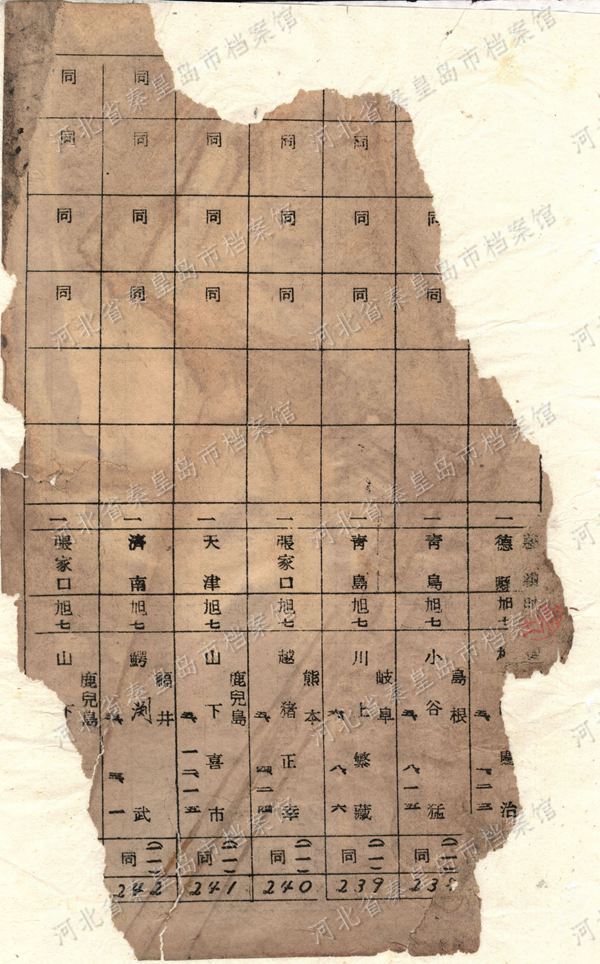
4.关东宪兵队《通信检阅月报》记载的日本军人信件中反映日军奴役“慰安妇”的罪行(1941年)
The Japanese military’s crimes in enslavement of "comfort women" reflected in the letters of Japanese soldiers described in Kwantung Gendarmerie Brigade’s Correspondence Review Monthly Report
日军在占领区采用十分严格的信件检查制度,在华日军和家属之间的信件,会被宪兵队检查官秘密打开,只要记录战场真实情况、有可能“影响军心”的信件,就被付之一炬。但烧毁前,检查官会将信中内容抄录留档,而这些留档的信件中,就有记录日军奴役“慰安妇”及反映“慰安所”的具体情况。
Japanese troops adopted a strict censorship of letters in the occupied territories, and correspondence between the Japanese military and their families would be opened secretly by military police censors; any letter recording the real situation in battlefields that might "affect the morale of the troops" was burned. But before burning it, censors would copy the contents of the letter on file, and these letters on file contain the details that recorded Japanese military’s enslavement of "comfort women" and the situation of the "comfort stations".
一件系驻开封日军第八四野战局渡边队户村英雄昭和十六年(1941年)二月一日写给东京本所区真砂町三六清如寮吉田保的信件摘抄,记录了在军队管理的“慰安所”, “慰安妇”随部队移动的特殊生活状态。信件被做“削除”处理,即将信件中有关“慰安妇”的内容开了“天窗”。
One document was an excerpt from a letter from Hideo Tomura of Watanabe Squadron in Japanese Army Eighty-fourth Field Office stationed in Kaifeng written on 1 February in Showa sixteenth year (1941) to Yasu Yoshida at Yoshida Hut 36, Masago-cho Honjo-ku, Tokyo. The letter recorded the special living conditions in a "comfort station" managed by the army, where "comfort women" moved with the troops. The letter was censored, i.e. the content concerning the "comfort women" was "deleted".
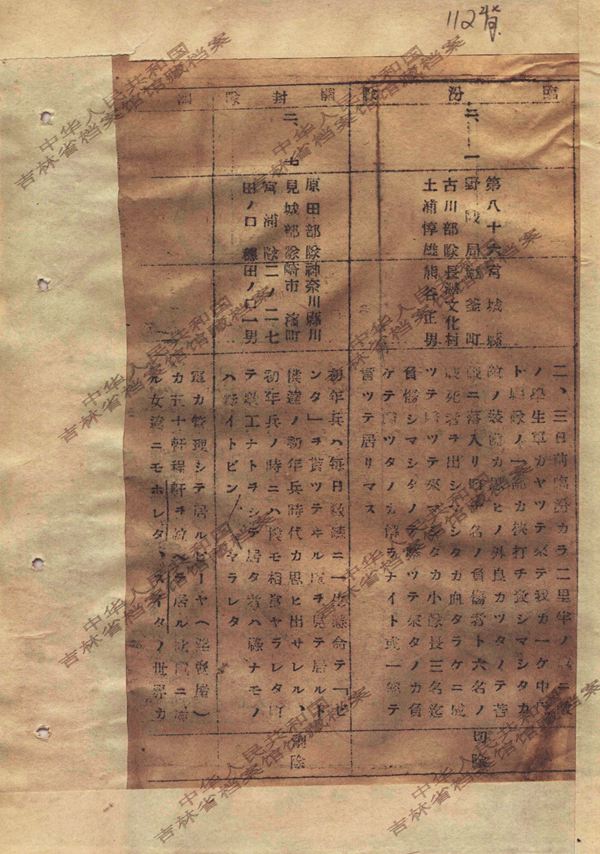
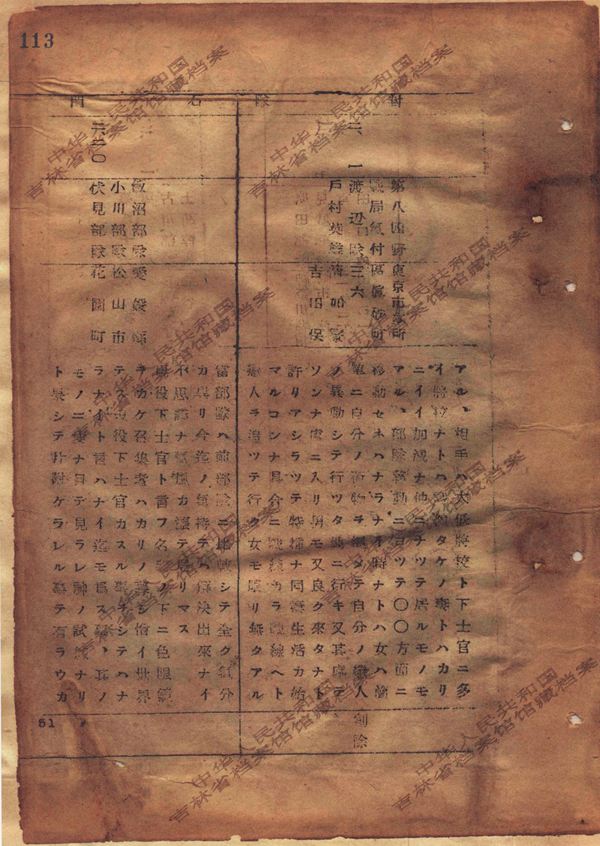
另一件系驻开封原田部队见城部队萩原部队本部北堀考治昭和十六年(1941年)写给埼玉县比企郡宫前村大字初尾小林菊野的信件摘抄,内容反映一个年轻的日本军人希望保持童贞,在部队却自暴自弃,到军队战地“慰安所”找朝鲜“慰安妇”寻欢,最终患上花柳病的畸型生活状态和心态。信件被做“切除”处理,即将信件中有关“慰安妇”的内容抠掉。
Another document was an excerpt from a letter that Kochi Kitabori in the headquarters of Hagiwara Unit, Harada troops, Kenjou forces stationed in Kaifeng wrote on Showa sixteenth year (1941) to Hatsuo Kobayashi of Oaza Kanmaemura Hiki-gun, Saitama Prefecture. The content of the letter reflected the abnormal living conditions and state of mind of a young Japanese soldier who hoped to keep his virginity, but he lowered his self-esteem in the army, and went to seek pleasure with Korean "comfort women" at the military field "comfort station”, ultimately suffering from venereal disease. The letter was censored, i.e. the content concerning the "comfort women" was "deleted".
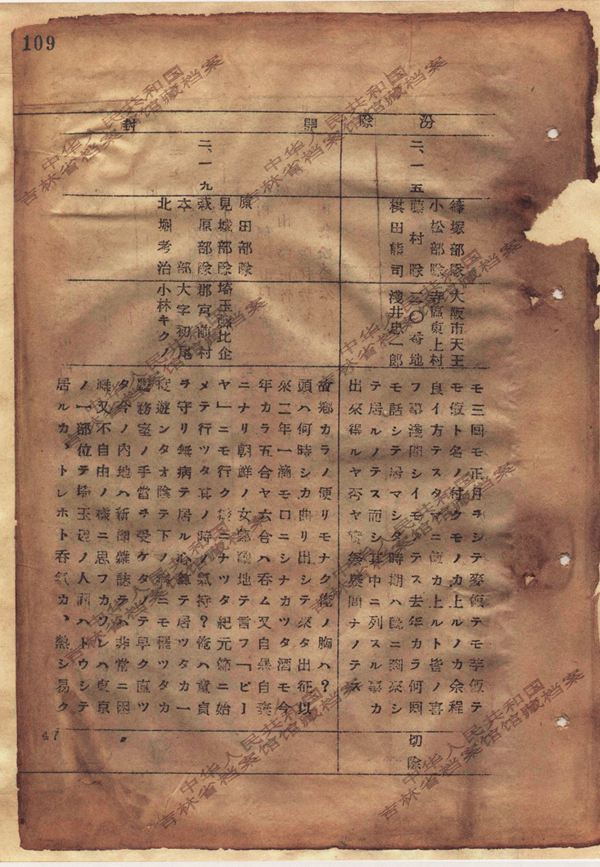
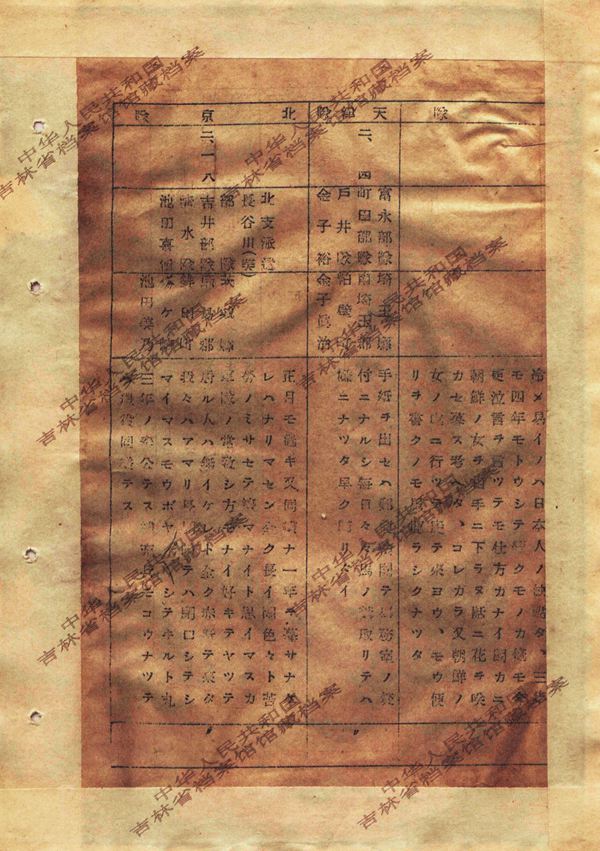
5.日军《宪兵月报》中记载在印度尼西亚的爪哇设有军队“慰安所”情况的档案
Archives of the Japanese military “comfort station” established in Java, Indonesia, recorded in Military Police Monthly Newsletters
1944年3月5日,日军爪哇宪兵队本部《宪兵月报(一月)》,记载了第三船舶司军属未经允许在军队“慰安所”寻欢;日惹铁道工厂日军雇员酒后到军队“慰安所”殴打“慰安妇”;南燃爪支厂一名日军雇员利用公出到军队“慰安所”寻欢;驻爪哇二七飞联的一名日本陆军士兵酒后到军队“慰安所”殴打“慰安妇”;独步一五七六部队本部陆军一等兵补到军队“慰安所”寻欢等情况,揭示了日军在印度尼西亚的爪哇设有军队“慰安所”的事实。
According to the Military Police Monthly Newsletters (January) issued by Japanese military police headquarters in Java on 5 March 1944, there were several accounts of men utilizing comfort stations to satisfy their sexual desires. In one case, family members of the Third Shipping Administration came to a military “comfort station” to satisfy their sexual desires without permission. After having alcohol, some Japanese workers at Yogyakarta Railway Factory assaulted some “comfort women” at a military “comfort station”; A Japanese military employee from Java Branch of Nanran Factory came to a military “comfort station” for sexual desire when away on official business. After drinking alcohol, a Japanese soldier from the 27th Joint Air Battalion stationed in Java assaulted some “comfort women” at a military “comfort station”; The cadet lance corporals from the headquarters of Unit 1576 of Independent Infantry also visited a “comfort station” for sexual purposes. All these accounts prove the Japanese Army had established military comfort stations in Java, Indonesia.
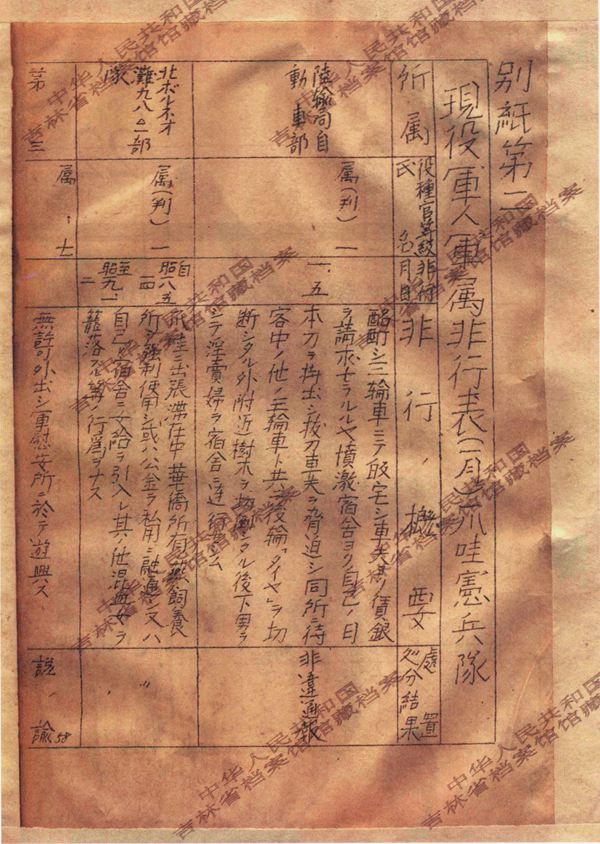
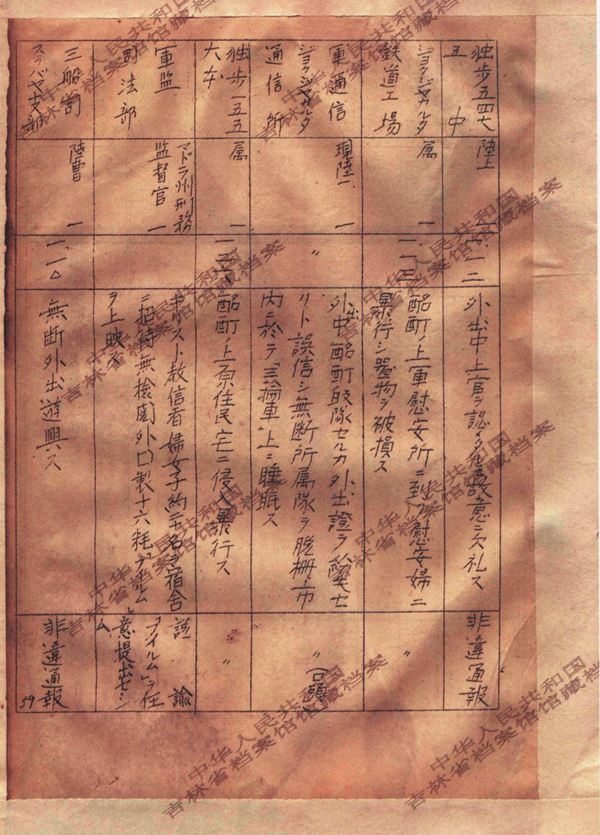
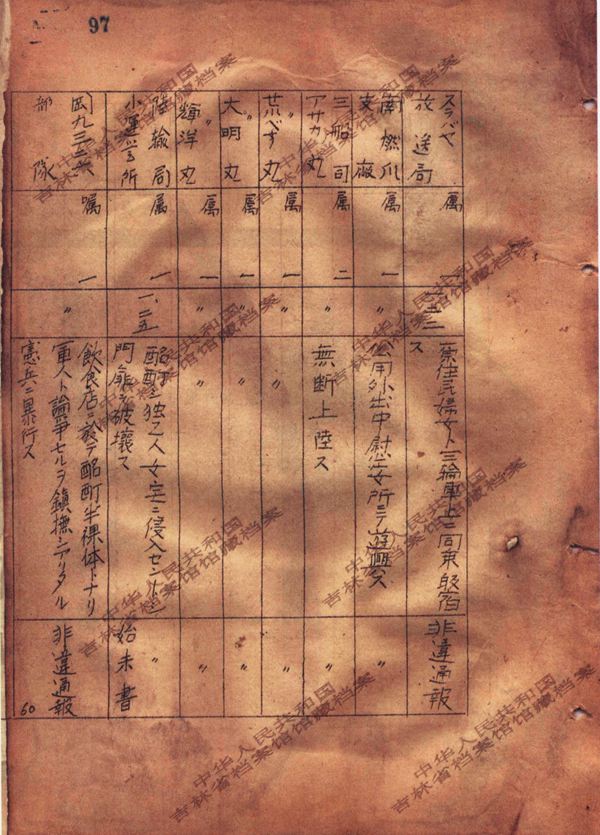

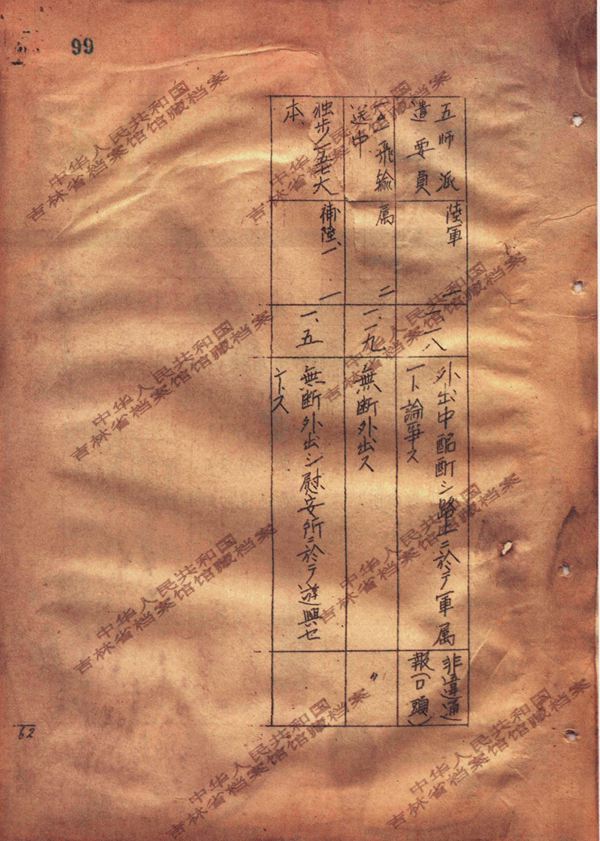
6.关于日军慰安所经营等情况的情报
Archives of the Japanese military “comfort station” established in Java, Indonesia, recorded in Military Police Monthly Newsletters
1944年3月5日,日军爪哇宪兵队本部《宪兵月报(一月)》,记载了第三船舶司军属未经允许在军队“慰安所”寻欢;日惹铁道工厂日军雇员酒后到军队“慰安所”殴打“慰安妇”;南燃爪支厂一名日军雇员利用公出到军队“慰安所”寻欢;驻爪哇二七飞联的一名日本陆军士兵酒后到军队“慰安所”殴打“慰安妇”;独步一五七六部队本部陆军一等兵补到军队“慰安所”寻欢等情况,揭示了日军在印度尼西亚的爪哇设有军队“慰安所”的事实。
According to the Military Police Monthly Newsletters (January) issued by Japanese military police headquarters in Java on 5 March 1944, there were several accounts of men utilizing comfort stations to satisfy their sexual desires. In one case, family members of the Third Shipping Administration came to a military “comfort station” to satisfy their sexual desires without permission. After having alcohol, some Japanese workers at Yogyakarta Railway Factory assaulted some “comfort women” at a military “comfort station”; A Japanese military employee from Java Branch of Nanran Factory came to a military “comfort station” for sexual desire when away on official business. After drinking alcohol, a Japanese soldier from the 27th Joint Air Battalion stationed in Java assaulted some “comfort women” at a military “comfort station”; The cadet lance corporals from the headquarters of Unit 1576 of Independent Infantry also visited a “comfort station” for sexual purposes. All these accounts prove the Japanese Army had established military comfort stations in Java, Indonesia.
Copyright ©2014-2023 krzzjn.com All Rights Reserved
湘ICP备18022032号 湘公网安备43010402000821号
中央网信办违法和不良信息举报中心 长沙市互联网违法和不良信息举报中心
不良信息举报电话:0731-85531328 19198230121(微信同号)
纠错电话:18182129125 15116420702
QQ:2652168198